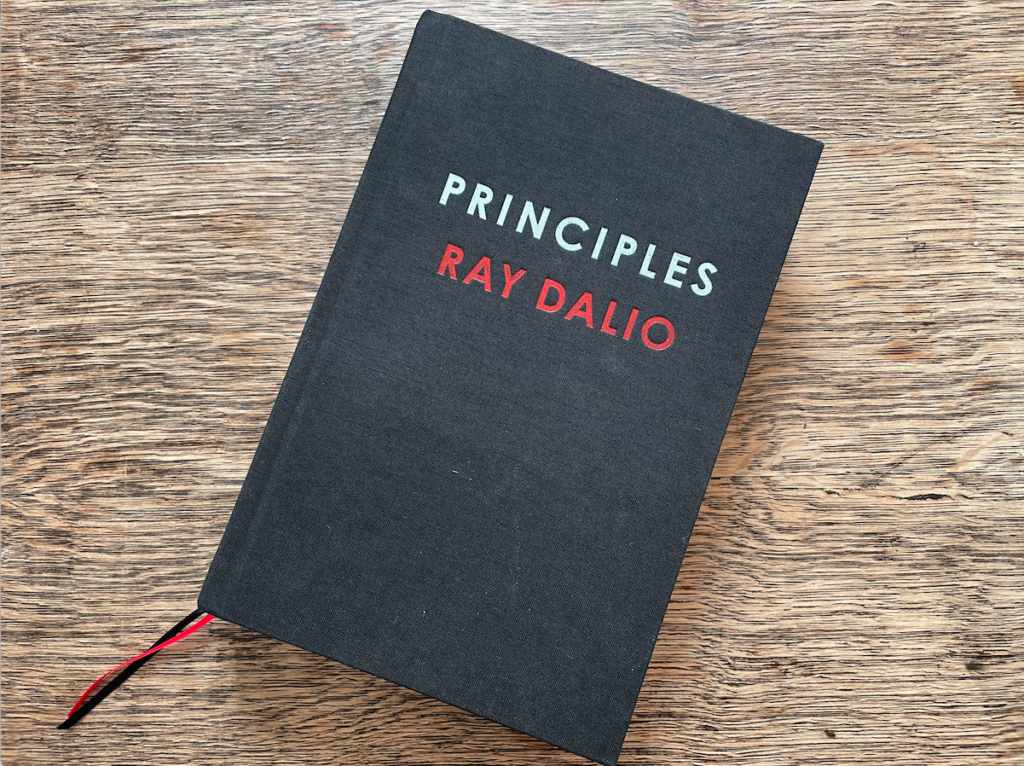Principles – Ray Dalio

Ray Dalio founded Bridgewater, the massively successful investment management firm in 1975.
His book ‘Principles’ was published in 2017 – so when I grabbed it off the shelf in London’s Foyle’s bookshop, I realised that I am decidedly late to the party. But I believe that this book is so good it deserves a review and a strong recommendation.
The first third of the book is a potted history of Ray’s professional career and the exponential growth of his company. He documents his ‘fails’ as well as his successes and we learn about his relationships with some of the greatest economic and spiritual thinkers of our modern age from government leaders to the Dali Lama.
Ray actively encourages you to leap past this part of his book if you do not deem it relevant. I found it easy to read and it helped shape and give context for what was to come.
The second and third part of this book are ‘business thinking gold’. It is like he has opened up the top of his head and is explaining how all the cogs fit together to make a well oiled machine that spits out – more often than not – great business and personal results.
Ray champions the perfect balance of knowledge and open-mindedness. He has systems for everything – which he documents in this book.
His systems are based on a career where he has chronicled all of his (and his teams’) actions and processes – and as if that isn’t enough he has run computer models alongside to validate and verify his theories.
There is so much in this book that is it hard to summarise. Here are a few salient nuggets which I hope will give you enough of a flavour to get the book and devour its contents yourself:
- When a decision needs to be made, (both in life and in business), it is a quest for “truth” – the most accurate information that will inform your decision making process.
- The ego must be pushed to the side (yours and others) as you triangulate data (from multiple reliable sources) and form an opinion on what to do next.
- Learn to recognise your blindspots. We all have them.
- Only radical honesty (good and bad) and continual feedback allow you to optimise.
- Recognise patterns in events and behaviour which repeat as “another one of those”. The quicker you are able to identify them the more you can improve how you deal with them.
If this all sounds a bit dry – worry not, Ray has made a series of animated short films (easily found on YouTube) to help explain his way of seeing the world. These work brilliantly as a set or as stand alone units to help you access his unique brand of high-level thinking.
Put simply – this could be the best business (and self-improvement) book I have read. Don’t miss out.
